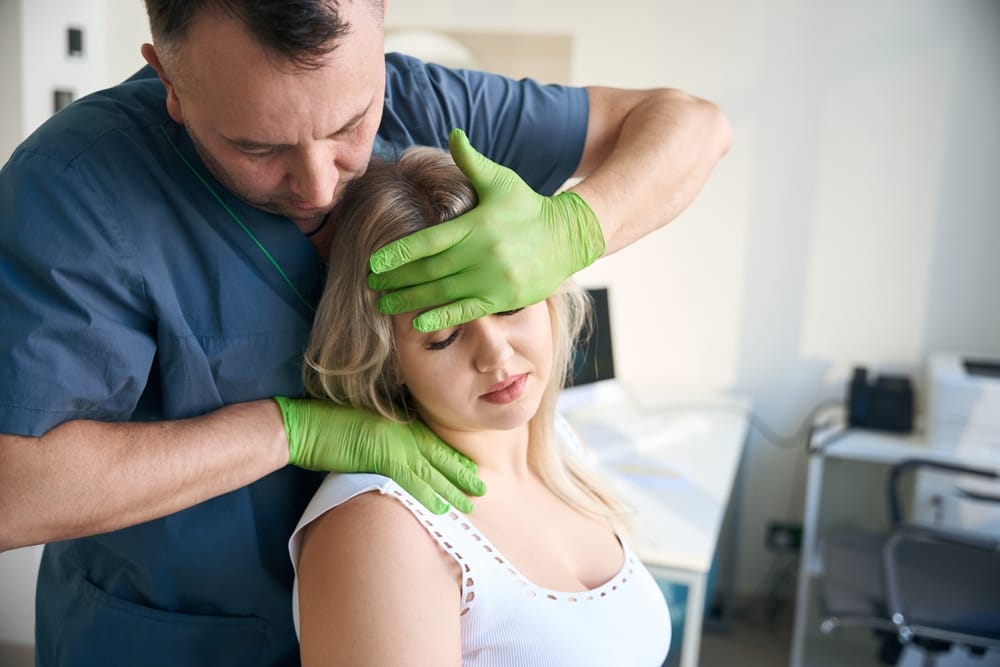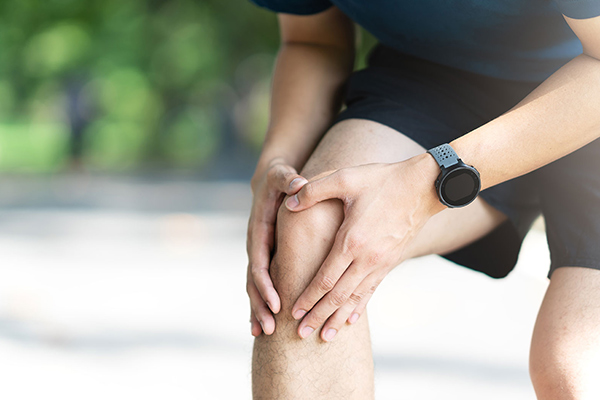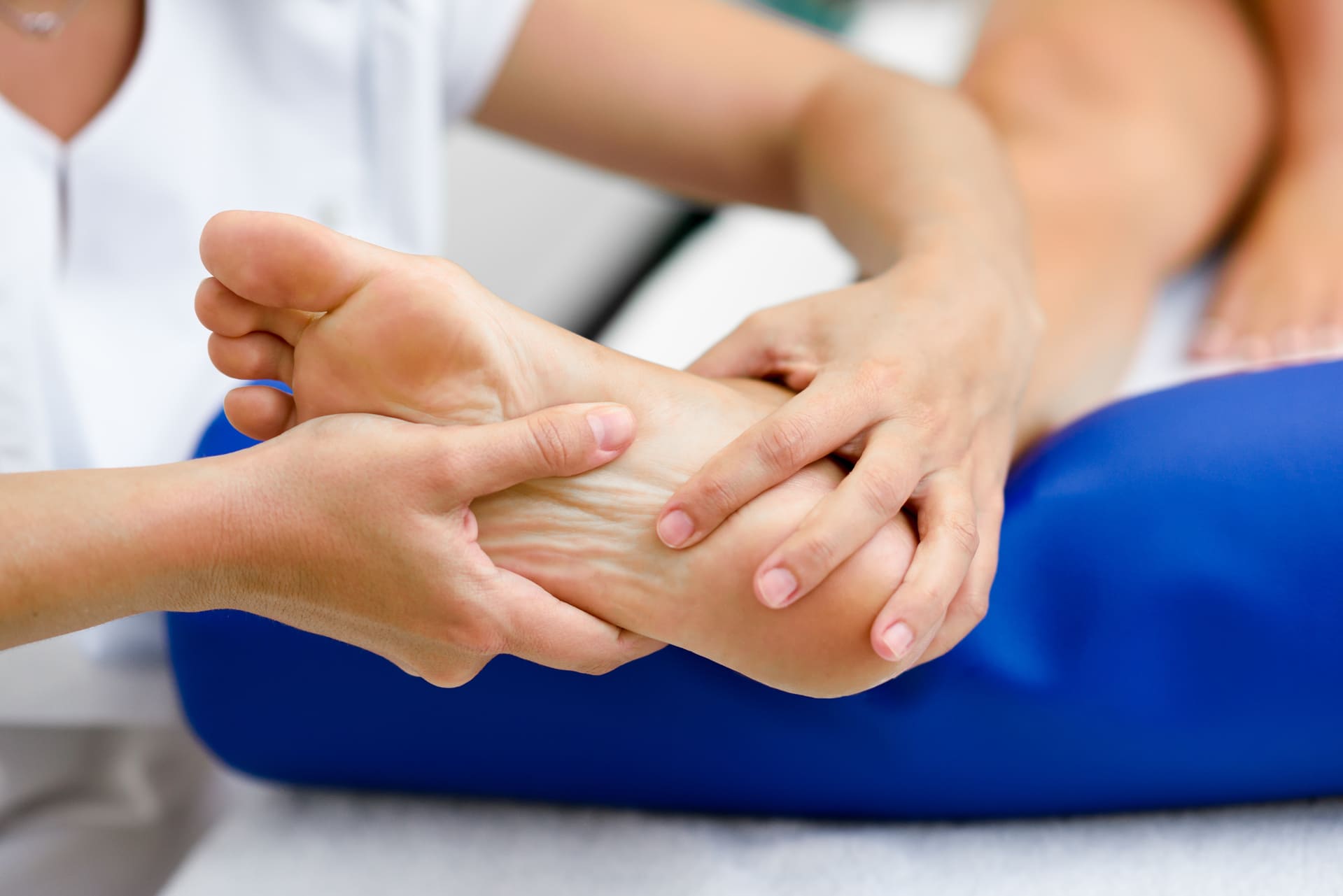A disc herniation is a condition where one of the discs between the vertebrae in the spine ruptures or slips out of place. It can cause pain, numbness, and other symptoms. Understanding the disc herniation symptoms is essential for knowing when to seek medical help. If you’re experiencing persistent discomfort, it could be time to get evaluated. In this article, we’ll explore the symptoms of lumbar disc herniation, treatment options, and when it’s necessary to see a doctor.
What is Disc Herniation?
A disc herniation occurs when the soft, gel-like material in the disc pushes through the outer layer, irritating surrounding nerves. In the lower back (lumbar region) or neck (cervical region), this condition can lead to severe pain, numbness, and tingling. Disc herniation symptoms vary depending on the location and severity of the herniation. If untreated, a herniated disc can worsen, leading to more significant problems such as nerve damage.
Causes of Disc Herniation
At SpineWell Centers, we understand that disc herniation can result from various factors, often related to lifestyle and the natural aging process:
- Aging: As people age, spinal discs lose moisture, becoming less flexible and more prone to tearing or rupturing under pressure.
- Repetitive Motion: Over time, repetitive movements such as heavy lifting, twisting, or bending can cause damage to the discs, contributing to herniation.
- Trauma or Injury: A sudden impact from a fall, car accident, or sports injury can cause discs to herniate.
- Poor Posture: Sitting for long periods with poor posture or standing improperly can put unnecessary strain on the spine, leading to herniated discs.
Symptoms of Disc Herniation
Disc herniation symptoms primarily affect the lower back and neck. The most common symptoms include:
- Lower Back Pain: Pain in the lower back that may radiate into the legs or buttocks. This pain typically worsens with certain movements such as bending or lifting.
- Sciatica: Pain that travels down the legs, typically on one side of the body, is a hallmark of lumbar herniation. The pain can be sharp and debilitating.
- Numbness and Tingling: Nerve irritation from a herniated disc can cause numbness or tingling sensations in the legs, feet, arms, or hands, depending on the location.
- Muscle Weakness: Pressure on the spinal nerves can weaken the muscles in the affected area, making it harder to lift objects, walk, or perform daily activities.
- Reduced Reflexes: A herniated disc can impair reflexes, which can be checked during a physical examination.
When to See a Doctor for Disc Herniation Symptoms
If you experience any of the above symptoms, it’s important to consult with a healthcare provider, especially if the pain is persistent or worsens. At SpineWell Centers, we recommend seeing a doctor if:
- Pain is Severe: Intense, sudden pain or chronic pain that doesn’t improve with home remedies should be addressed by a specialist.
- Numbness or Weakness: If you notice numbness or weakness in the legs, arms, or hands, it could indicate nerve compression, which needs to be evaluated.
- Loss of Bowel or Bladder Control: A herniated disc can sometimes compress the spinal cord, leading to cauda equina syndrome, which is a medical emergency.
- Inability to Move: Difficulty moving your limbs or performing everyday tasks due to weakness or pain may require intervention.
At SpineWell Centers, we specialize in treating spine-related conditions, and early intervention is key to managing and reducing long-term symptoms.
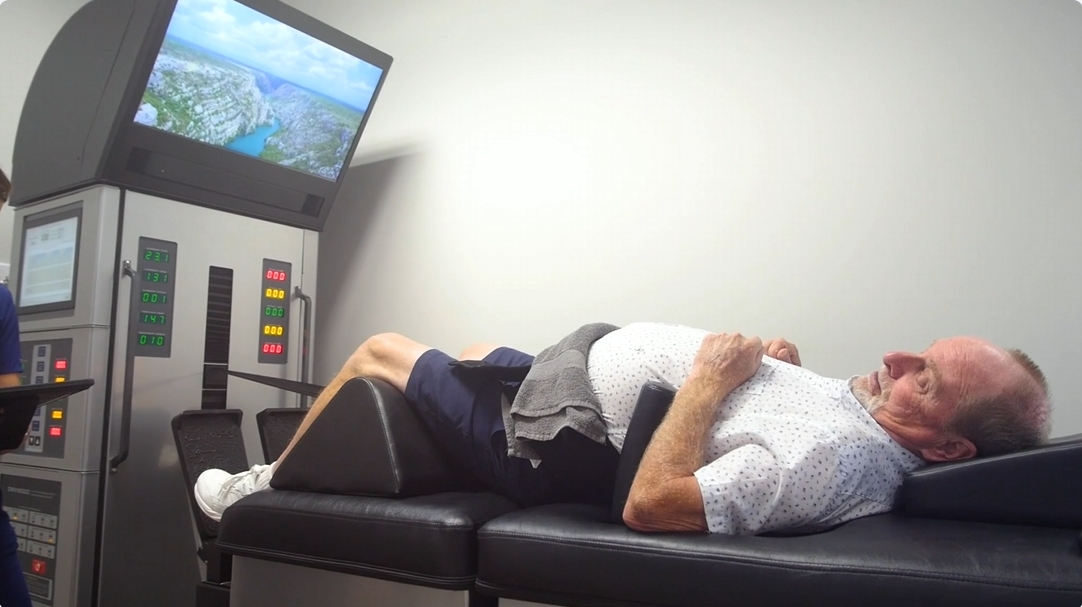
How is Disc Herniation Diagnosed?
When you visit SpineWell Centers, we perform a thorough examination to accurately diagnose disc herniation. This process includes:
- Physical Examination: We assess your posture, reflexes, and range of motion to determine the extent of the issue.
- Imaging Tests: Depending on the severity of the symptoms, we may recommend:
● MRI (Magnetic Resonance Imaging): This imaging technique provides detailed views of the discs and soft tissues, allowing us to locate the herniation.
● CT Scan (Computed Tomography): A CT scan may be used when further detail is needed for diagnosis.
● X-rays: X-rays help rule out other causes of pain, such as fractures or degenerative conditions, but do not show the soft tissues like discs.
Non-Surgical Treatment for Disc Herniation
At SpineWell Centers, we are committed to offering non-surgical treatment for disc herniation. Our goal is to relieve pain and promote healing without resorting to invasive procedures. Common treatments include:
- Physical Therapy: A physical therapist will guide you through strengthening exercises aimed at stabilizing the spine, reducing pain, and increasing flexibility. This may include specific exercises tailored to your condition, helping you regain mobility.
- Medications: Over-the-counter pain relievers such as acetaminophen and ibuprofen are often used to manage pain. For severe pain, we may recommend stronger medications or muscle relaxants.
- Epidural Steroid Injections: In some cases, we offer corticosteroid injections to reduce inflammation and provide long-lasting pain relief.
- Hot and Cold Therapy: Applying heat or cold packs to the affected area can help reduce inflammation and provide immediate pain relief.
- Lifestyle Adjustments: Maintaining a healthy weight and improving posture can reduce the pressure on the spine and prevent future herniation.
Spinal Decompression with DRX9000® & Accu-SPINA®
At our center, we offer advanced, non-surgical spinal decompression treatments using the FDA-cleared DRX9000® and Accu-SPINA® systems—two of the most effective technologies for herniated disc treatment.
These systems work by gently relieving pressure on the spinal discs, allowing nutrients and fluids to flow back into the affected area, supporting natural healing. Unlike traditional treatments that only mask symptoms, the DRX9000® and Accu-SPINA® target the root cause of the problem—reducing inflammation, easing pain, and restoring mobility to the spine.
Not all spinal decompression equipment is created equal. Many treatments, like traction tables, don’t provide the same level of effectiveness or precise targeting as these state-of-the-art systems. We ensure you receive the best care with our advanced decompression therapies.
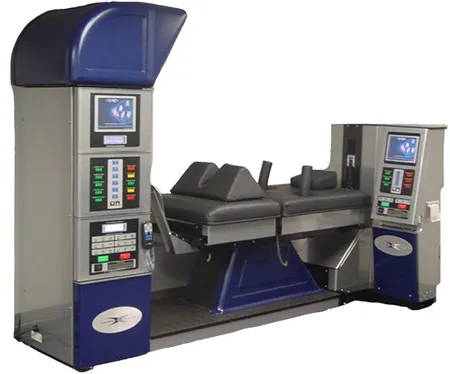
Preventing Disc Herniation
While not all cases of disc herniation can be prevented, there are steps you can take to reduce your risk:
- Practice Good Posture: Maintain a neutral spine position to reduce strain on the discs.
- Exercise Regularly: Strengthening your core muscles can provide better support for the spine.
- Lift Properly: Always bend at the knees and avoid twisting motions when lifting objects.
- Avoid Smoking: Smoking reduces blood flow to the spine, contributing to disc degeneration and herniation.
Now Serving Patients in Jacksonville, FL and Jacksonville Beach, FL
SpineWell Centers is now serving patients in Jacksonville, FL, and Jacksonville Beach, FL. If you’re experiencing disc herniation symptoms or are dealing with lower back pain, we’re here to help. Our expert team offers a variety of non-surgical treatment options designed to manage pain and promote healing without the need for surgery.
At SpineWell Centers, we provide personalized care and treatment plans tailored to each patient’s unique needs. Whether through physical therapy, medication management, or advanced non-surgical treatments, we are committed to your health and recovery.
Contact SpineWell Centers today to schedule a consultation and take the first step toward better spinal health.
Testimonials
Our Locations
2 Offices In North FL To Serve You
Nearby Cities:
Nearby Cities:
Nearby Places:


